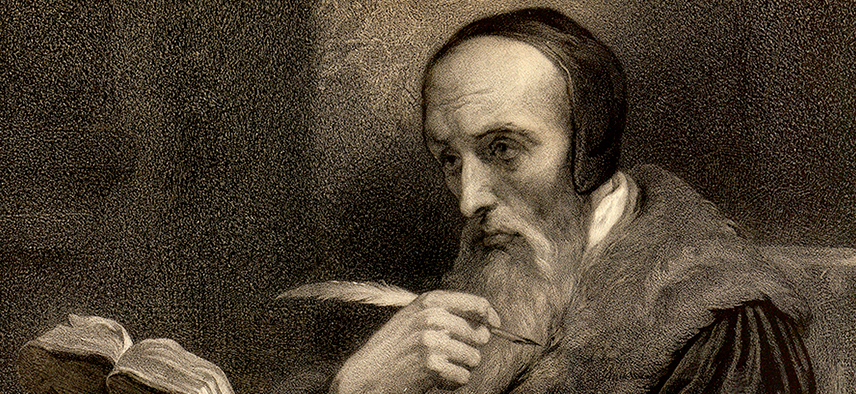Much of Christianity is celebrating this year’s 500th anniversary of the birth of John Calvin. Unfortunately, popular images of the French reformer are often distorted, surrounded by myths that do not represent the true Calvin and his decisive ministry of nearly 25 years in the world. Swiss City of Geneva. In the table below, we offer the reader a brief description of the main myths built around Calvin and the true image that arises from the serious study of his life and influence in the Western Church and society.
Myth: Calvin invented the doctrine of predestination.
- Fact: Among others.
- Augustine.
- Anselmo.
- Aquinas.
- Luther.
- And Zwinglius taught and wrote about the doctrine of predestination before Calvin.
- Emphasizing God’s free grace triumphing over the poverty and slavery of sin.
Myth: The doctrine of predestination is at the heart of Calvin’s theology.
Fact: In his writings, especially in the comments, Calvin addresses the subject when the biblical text requires it and, as some scholars have suggested, the central theme of his theology seems to be the mystical union of the faithful with Christ.
Myth: Calvin wasn’t interested in missions
Fact: Between 1555 and 1562, a total of 118 missionaries were sent abroad from Geneva, much more than many missionary agencies today. And the first martyrs of the evangelical faith in America were sent by Calvin to Brazil to seek refuge from the reformed persecuted in Europe and to evangelize the Indians.
Myth: Believing in predestination discourages prayer.
Fact: Calvin wrote more about prayer than predestination in institutes, emphasizing prayer as a means of grace through which God’s will is fulfilled and his blessings poured out.
Myth: Calvin is the father of capitalism
Fact: The forces that shaped modern capitalism were already present in Western culture some 100 years before reform, what Calvin appreciated in his writings was study, work, frugality, discipline and vocation as a means of overcoming poverty. He didn’t condemn beneficios. de honest work.
Myth: Calvin was the dictator of Geneva.
Fact: He had little influence on decisions concerning the civil order of the city and had no right to vote in the political or ecclesiastical decisions of the city council; his influence was convincing, through his sermons and writings. In countries influenced by Calvinist thought, no dictators appeared, not in the political sphere, let alone in the ecclesiastical sphere.
Myth: Calvin had Miguel Serveto killed
Fact: Servet was executed by order of the Geneva City Council for heresy, in particular for denying the doctrine of the Trinity; he had been convicted on the same grounds by two Catholic courts, escaping death just for fleeing France. He went inexplicably to Geneva. In the end, all European reformers unanimously supported the Geneva Council’s decision.
Myth: Calvin’s teachings are socially and politically alienating.
Fact: you can see the influence of Calvin’s thought on the Puritan revolution of 1641 and the first deposition and execution of a tyrant king in 1649, in England; the rise of the Republican government (with the division and alternation of power, in addition to the emphasis on social compactness); in the American Revolution of 1776; freedom of slaves and defense of freedom of the press.
Myth: Calvin had no interest in education
Fact: Calvin not only opened one of the first primary schools in Europe, but helped found the University of Geneva in 1559 Some of the most important universities in the West, such as Harvard, Yale and Princeton, were founded under the influence of educational concepts of the French reformer. The permanent image associated with the reformed churches is that they always have a school next door.
Myth: Calvin’s teachings are not biblical.
Fact: Calvin placed great emphasis on the authority and priority of Scripture and practically inaugurated the historical-grammatical method of biblical interpretation. He wrote comments on most of the New Testament and much of the Old Testament, as well as thousands of sermons. And his great work was the Institutes of the Christian Religion, which would be “a key that opens the way to all the children of God in a good and correct understanding of the Holy Scriptures”. The French reformer fought to ensure that his entire world view was under the authority of the Bible.
I do not want to treat Calvin in a non-critical or iconographic way, he was aware of his weaknesses and sins, and his many preserved prayers bear witness to his humility and dependence on God’s abundant grace in Jesus Christ. What we do is get the dear reader to omit the cartoons and go directly to the source, studying and meditating on Calvin’s work, recognizing it and taking it seriously as a church teacher (praeceptor eccleisiae). The benefits of such a study will be incalculable for your life and those around you.
I thank friends Augustus Nicodemus and Solano Portela for the suggestions added to this table.

